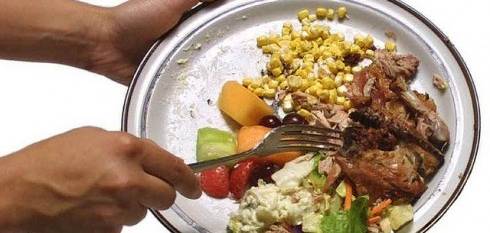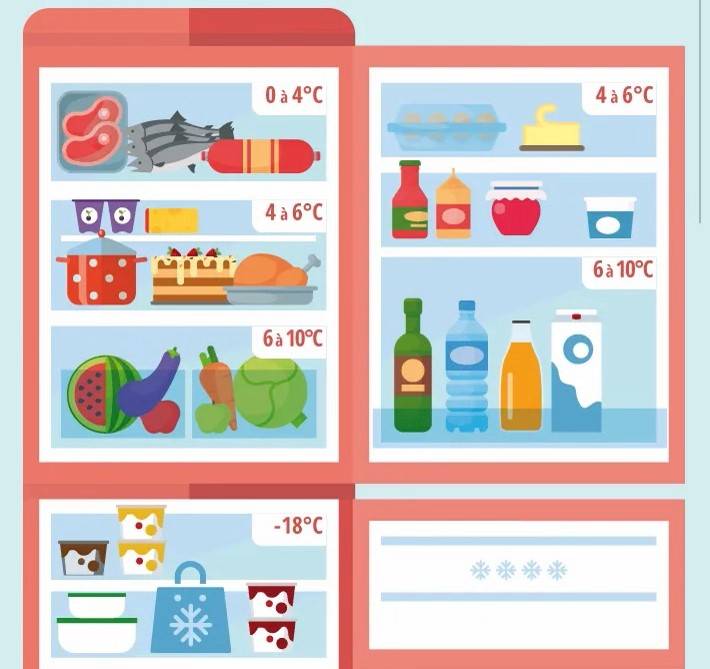
Throwing away food is also throwing away money . So on a personal level, here is what it is possible to do to stop wasting - A series of gestures and good behavior prevent us from filling our bins unnecessarily.
Addressing the scourge of overflowing garbage cans that generate costs on all floors will be one of the missions of our coming years.
Tips to Reduce our Food Waste
- Finish the leftovers , there are a thousand and one ways to accommodate them: let's make gratins for example and everyone will enjoy it. So they won't end up in the trash.
Remember to wrap our open packages or our leftovers in small airtight glass boxes in order to preserve them from other foods and thus prolong their conservation (cookies, cheeses, dishes, etc.)

- Watch and store your stock in cupboards, your fridge and your freezer, before you want to buy other foods. Let's take out those who are hidden, those whose DLC is approaching, it's time to cook them.
- Eat before shopping, we will be less tempted to buy and store everything. We buy only what we need, adjust our quantities especially on fresh products. It's better for the wallet.
- Always make a list so you don't buy what we already have.
- Avoid the gondola heads, let's be vigilant about promotional offers. No impulse buying . Let's prefer 2 or 3 individual packages, often cheaper than the lots, to your calculators! In addition, it multiplies our packaging waste by as much and increases our waste.
- Take advantage of short dates on consumer products, a new section has appeared in our supermarkets with products with very short DLCs. Let's take advantage, the prices are down, the products are still so good and it will not end up in the trash!
- Avoid prepared meals , their preparation contributes to the waste of raw materials throughout the production chain. In addition, the ¾ contain too many additives. Nothing beats homemade, it's much better for our health.
- Do not spoil at the store checkout, in supermarkets we have to bring back the fresh and frozen that we no longer want when we arrived at the checkout. If not will be thrown!
- Tidy up logically, the latest arrivals go to the back of the cupboard or fridge. Not all fruits and vegetables go in the fridge and keep better in the ambient air or covered in a cool, dry place (potatoes, apples, tomatoes, melon, peach).
- Keep your feet in the water, certain vegetables and aromatic herbs (parsley, aromatic herbs, broccoli, leeks).
- Revive the vegetables in a bath of cold water with the addition of vinegar and 2 lumps of sugar. If they have frozen, immerse them in a bath of cold salted water. In any case, we can make gratins, pies or soups to avoid throwing them away.
- Keep your overripe fruits, to make smoothies, compotes, coulis,… if not, we can rub those which are started with lemon juice for a longer conservation.
- Store drinks: cool for carbonated bottles and upside down to prevent gas from escaping; in evidence for opened bottles of wine so as not to spoil it.
- Freeze the fresh bread, take it out 1 hour before consuming it and take only what we need for the day. If not, there are many recipes for using hard bread, such as making croutons, breadcrumbs, French toast or even bruschetta. But we can also humidify it and put it in the oven or in the microwave.
- Dose the food, rice, pasta, quinoa using a glass according to the number of people for whom you are cooking and limit the leftovers.
- Cooking vegetables as a priority, these foods are the most fragile and lose their vitamins in a few days, so let's not wait.
- Preserve and cook pea pods, radish or carrot tops, for cream soups or soups.
- Growing your own vegetables and planting fruit trees, what a pleasure to consume your own harvest, even on a balcony we can grow our tomatoes. If there is any left, let's share with our family, friends or neighbors.
- Make preserves and jams, with harvested fruits and vegetables, or put in the freezer what we do not consume today. Many sites teach us about all kinds of preservation methods, whether in jars, oil, salt or sugar.
- Share what we do not consume, when leaving on vacation, do not throw away, let us give to our loved ones.
- Learn to read, the DDM (Date of Minimum Durability) is the famous "to consume preferably before ..." or "to consume preferably before end ..." written on food packaging, as well as the DLC (Deadline of Consumption) or the "to consume until ...".
-
- The DDM authorizes consumption of the food after date, provided it is stored correctly. The product is not expired but it may have lost some of its qualities. Check that the packaging is not damaged or bulging and ensure that the product looks, smells and tastes good.However, it is recommended that pregnant women, the elderly and young children avoid consuming a product beyond its MDD.
- The DLC indicates the maximum lifespan of a product. After this date, the product is expired and not consumable . Consuming it beyond this date carries health risks.
-
- Leave the restaurant with what we have not eaten, use this packaging to take away our leftover meals. The use of the Doggy Bag is more and more common in the world - we can also ask for our bottle of wine, so don't hesitate.
- Offer our guests portions of good meals that we did not consume because we saw too large for this meal with friends - this surplus will not end up in the trash.
These few steps must become a daily discipline for all of us and this learning must begin at an early age.
- Educating our young people is essential, let's teach them to fight against waste, in partnership with the National Education, in order to strengthen their awareness from an early age.
- Empower our children when they are at the cafeteria, explain to them the reason why they must be used reasonably so as not to spoil. Take only what they are sure to eat.
Posted on 2021-02-22 11:28








Comments